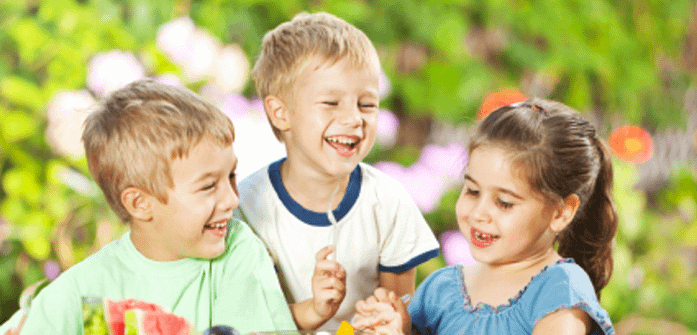My initial interest in emotional and social development in early childhood years was born while facing the challenges of raising both my children in another country whose cultural background differed in many ways from the culture of my native country. In an attempt to discover ways to increase the social and emotional wellbeing of my own children through reading and research on the subject of social and emotional development in children (also known as Social and Emotional Learning), my initial curiosity grew into a genuine concern of the social and emotional wellbeing of all Australian children. On the national scene, research revealed that a relatively high percentage of Australian children lack social and emotional skills, which affects their wellbeing, cognitive development and academic outcomes. It was through this that I came to the realisation that this problem appeared to be not only a matter of my personal preference, but a concern at a national level.

So just what is social development in early childhood? And what role does it play in the life of a child? A growing body of research undertaken in the last two decades demonstrated that Social and Emotional Learning is fundamental to children’s emotional wellbeing, academic achievement and success in life. A significant body of empirical research indicates that children who lack social and emotional skills have an increased tendency towards stress, anxiety and depression. The rationale behind this assertion is that those children who have difficulties in recognising and regulating their emotions effectively are more likely to experience frequent feelings of fear, sadness, and anger, which usually support avoidant social behaviour.
Those children generally develop negative feelings and attitudes towards their peers and significant adults in life, which, may affect the social relationships across their lifespan. Hence, children with a lower level of social and emotional competence may feel insecure, misunderstood and unsupported, resulting in emotional and social isolation from others. In addition, children with poor social and emotional skills generally display lower educational attainment and thus remain unqualified as well as often unemployed. Socially and emotionally incompetent children may experience difficulties in focusing their attention on the learning task at hand and acquiring new knowledge while simultaneously disrupting the learning experiences of their peers. Children’s disruptive behaviours can increase the possibility of school absenteeism and school failure. Hence, a low level of social and emotional competence in children may interfere with their learning engagement and academic attainment, consequently impeding their potential for success in life.

Focusing on emotional development in children is incredibly important for a child’s overall development. Children with well-developed social and emotional skills are able to recognise and manage their emotions effectively, empathise with others, and make sensible decisions regarding their behaviours and social interactions. Hence, those children manage to associate with a wide range of individuals and are able to establish and maintain positive relationships with peers and significant adults in their life. Engagement in positive relationships with their peers and teachers provides a sense of security, belonging, and support to those children. This is associated with a positive attitude towards school environments and increased participation in the learning activities. Socially and emotionally competent children are more self-aware and self-assured about their capacity to learn and achieve academically and, therefore, can bring out their best in school. Those children can motivate themselves, have self-discipline, and are well organised when approaching their work. Hence, children who are able to manage their stress effectively, display resilience when faced with challenges and make responsible decisions regarding completing their homework do better academically.
Social and Emotional Learning comprises the following five sets of social and emotional competencies, which are imperative for a person’s emotional and social development in early childhood:

being consistently warm and affectionate towards their child/ren
treating their child/ren with dignity and respect (keep open communication with the child, but try to respond in ways that can increase your child’s problem-solving skills and sense of autonomy)
being reliable and responsive to the child/ren’s needs
praising the child/ren frequently and using encouraging words (focusing on the child’s efforts, instead of focusing on the results)
having frequent one to one interactions while making direct eye contact, smiling and laughing together
providing a healthy daily routine by being consistent and predictable (a daily schedule brings consistency to a child’s life)
helping children to identify their feelings and label them correctly by using appropriate words (e.g. ‘Are you feeling sad because your friend didn’t come to play with you today?’)
allowing children to make choices about decisions that affect them (e.g. ‘Do you want to wear your pink dress or your white dress today?’)
providing opportunities for social interactions with other children (e.g. inviting a child to your home for a play, going to the local playground or park where there are other children, attending playgroups regularly etc.)